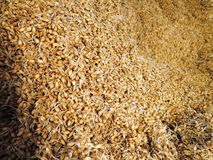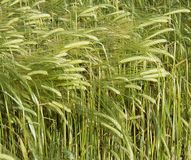Organic Malting Barley Breeding
Why organic beers also need organic varieties
Organic beer requires certified organic barley according to EU organic regulation. For the production of organic malting barley, almost only Z-seed is used, which has only been ecologically propagated for one generation. Almost 100% of the varieties used are cultivated under the conditions of conventional farming with easily soluble mineral fertilizers and chemical synthetic pesticides. These varieties were first propagated organically exactly this one generation before being cultivated for consumption. The organic barley market is therefore almost completely dependent on conventional agriculture. And not without reason.
Challenges for consistent organic seed
In Central Europe, sustainable, consistent ecological seed propagation is confronted with four seed-borne diseases, to which no focus has been given in breeding because the seeds are almost always treated with chemical synthetic seed dressings. Ecological alternatives are only available to a limited extent, because although, for example, stripe and net blotch disease could be reduced with alcohol. Alcohol is not permitted as a seed treatment agent in organic farming - and in its undenatured state it is also very expensive; denatured it is harmful. Ustilago hordei can be reduced very strongly with mustard flour preparations, but not 100%. Up to now, no ecological preparation has helped against Ustilago nuda, and even hot water treatment is usually insufficient or very difficult to use.
Breeding is therefore required for resistance to these diseases, as they occur in isolated cases, sometimes in this or that usually older variety or genetic resource from a seed bank. To combine these resistances in an ecological variety is the declared goal of the research and breeding efforts at Cultivari Grain Breeding Research. The work has already progressed quite far and with the variety Odilia the first prototype could be made available for the market, which still lacks one or the other. This is because brewing quality at the current level of brewing technology and, of course, a variety-specific weed regulation through better, i.e. earlier achieved ground cover in the course of vegetation, are required. This makes it possible to avoid repeated use of the harrow, which can also damage the nests of ground breeders (skylark, quail, etc.).
Development of Disease Resistances
Research to date has shown that the most easily established resistance to spreading (the embryo in the seed grain is attacked but does not reach the vegetation point) is unfortunately not sufficiently effective, because there are still a few plants in the field that show Ustilago nuda.
For seed production, a maximum of 3 plants suffering from Ustilago nuda may be found on 150m² of propagation area, regardless of whether the infestation might increase next year or not. In this respect, work is now being done on extending this resistance to include further resistance properties. In the case of another, namely embryo resistance (even the embryo in the grain cannot be attacked by the fungus), the combination with Ustilago hordei resistance has proven to be almost insurmountable. Therefore, with this resistance, the supposedly Ustilago nuda resistances are the ones susceptible to Ustilago hordei. However, it is obviously not an epistatic effect, but a close genetic coupling, so that it should still be possible to find offspring that are resistant to both diseases. This is also being pursued by Cultivari.
Organic breeding as the key to organic malting barley
The fact that even an organically bred variety must be yielding the same yield as a conventional variety grown from organically produced seed remains unchallenged. However, savings in weeding and reduced pesticide use in the propagation process should not be neglected in monetary terms in the comparison. In the case of Cultivari, the first task now is to bring the improved resistances to the brewing quality level demanded by the brewers for pilsner malt in a new spring barley. To achieve this, the work on summer malting barley at Cultivari over the next five years will also require the support of those who today are still forced to resort to conventional varieties and conventionally produced seed. Because the situation will not improve by itself. Also the help of the eco-beer enthusiasts in accomplishing this task through donations will help.
Additional Links:
Organic Malting Barley: Odilia
If you have any questions, ideas, or concerns feel free to contact us.



